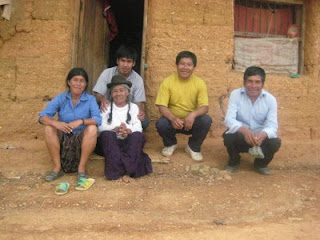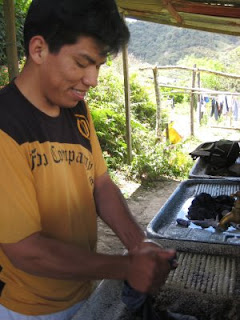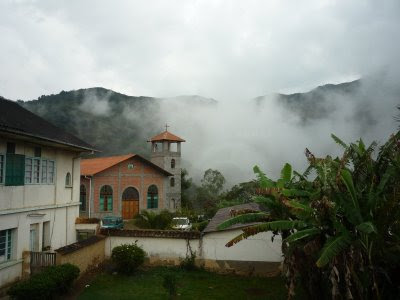
Little girls dressed up as cholitas and the little boys dressed with their chullus and vests.
As is the more recent custom in Carmen Pampa, there was a mass in the church that was well attended. At the mass, young children from surrounding villages came dressed up in colorful, traditional Bolivian dress. Holding hands, they danced down the center aisle during the offering of the gifts of wine and bread and, in boy-girl pairs, each took a turn bowing before the empty cradle.

Boys from the community pose for a picture before mass.
Following mass there was a mad rush for the back of the church where each child under 10 years received a gift bag with Christmas goodies. Then everyone proceeded over to the main hall in Campus Manning where the few UAC-CP students who stay on campus during break to work helped served bread and hot chocolate. Friends, family, neighbors, etc., all sat and chatted for an hour or so before getting on their way home.

After mass with my godson, Daniel, Padre Alejandro, Kristia (Daniel's sister), Fico, Dani, and a seminarian.
I was invited, along with Hugh and Sam, to the home of Fico and Dani Carrizales--two UAC-CP thesis students and administrators. Their son Daniel was baptized during the mass and I was his godmother, so they had us over to their home for a meal and cake. We sat and talked and ate and looked at pictures. A lovely way to spend Christmas Eve.
Feliz Navidad a todos!

P.S. A picture of my godson Daniel with his baptismal cake...because he's just that cute!
























+089.jpg)


















